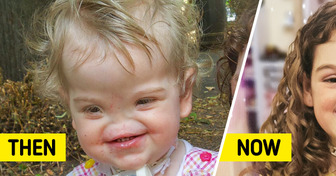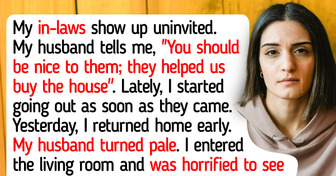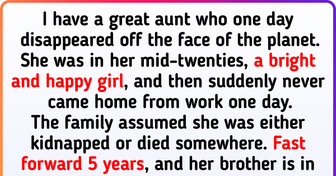12 Stories That Prove Our Parents Aren’t Superheroes — But Close Enough


27% of American grown-ups stopped talking to a family member, according to a study. 1 in 10 said they stopped talking to either a parent or a child. Here are more stats from a study where adult kids were asked about their relationships with their parents. 6% stopped talking to their moms, 26% stopped talking to their dads. Let’s check the reason why it happens.

Parental narcissism means a parent who acts like they’re better and more important than everyone else. They can be selfish and not care about how others feel. A narcissistic parent tries to control their adult child’s life, seeing them only as an extension of themselves. They don’t like when their child grows independent because they want to stay in charge.
When a family member is narcissistic, they’ll do whatever it takes to keep control over their child, making them focus on the parent instead of living their own life. Trying to control or manipulate an adult child is emotional violence.
Deciding to break ties with a parent who’s emotionally toxic isn’t easy. If a child does cut off their parent because of narcissistic behavior, they might feel a mix of emotions: sadness, anger, guilt, but also relief and happiness.

Lately, people use the term «toxic behavior» a lot to describe when someone disagrees with them or when there’s a lot of arguing in a relationship. But this overuse takes away from what toxic behavior really means. Calling every family argument «toxic» might lead to giving up on family members without trying to fix the real problems.
However, when parents actually behave in toxic ways, it can push their kids away in 8.3% of cases. Many adults cut ties with their parents because of things like not caring about their feelings, not respecting their boundaries, making them doubt their own thoughts, and being overly critical.

When either the parent or the grown-up child, or both, have mental health problems, it can cause family members to become distant from each other. These issues might include things like trauma passed down through generations, feeling anxious or sad a lot, having bad habits, having mood swings, or having trouble with identity and relationships.
When parents have mental health problems and their kids have to act like adults too soon, it can lead to the kids feeling very stressed or becoming too independent too quickly. If the grown-up children struggle with their mental health and their parents can’t support them in the way they need, it can also cause problems in the family.

Grown-up kids who were hurt by their parents or other family members might need to stop talking to those adults who either did the hurting or let it happen. In a study about families growing apart, most people said they stopped talking to their moms because of being emotionally hurt when they were kids. And more than half said the same about their dads.
Sometimes, not talking to family is because of a bad relationship between the adult child and their partner. The partner might not get along with the parents or think they don’t like them. So they try to stop the adult child from seeing their family.

When parents clash over how to raise kids, or their roles in the family, it can cause a rift between parents and kids. Sometimes, the adult child feels upset because their parent won’t listen to their side or understand their experiences. Or they might disagree on some stuff, which pushes them apart.
Different values might lead parents to say mean things about their child’s life choices, partner, or job. It might seem like the parents don’t care about what the adult child is going through. Even though family members won’t always see eye to eye, parents should still support their adult kids, no matter what.

When parents split up, it often causes family members to drift apart. Divorce can create divided families, where adult kids feel pressured to choose one parent over the other in 13.2% of cases. It can also make a parent act mean, saying hurtful things about the other parent. If one parent moves away or gets remarried, it can make the kids feel distant and resentful.
Joshua Coleman, a psychologist who wrote about family estrangement, mentioned in an interview with Salon how divorce can lead to families growing apart. Divorce can make one parent talk badly about the other, which can influence how the child sees them. The child might also start blaming one parent more than the other on their own. New people like stepparents and step-siblings might join the family, causing competition. In a culture where people focus a lot on themselves, kids might see their parents more as separate individuals with good and bad points, instead of as a family together.

10% of adult children cited parental disapproval of their relationships with partners or other significant individuals as a cause of estrangement. This disapproval may extend to spouses, dating partners, in-laws, or stepparents. Such lack of acceptance can strain family bonds and lead to estrangement.

7.7% of cases reported favoritism, where parents were seen to favor one child over others, causing strain in family relationships. This perceived preference can lead to feelings of resentment and isolation among the children involved.
In contemporary society, family estrangement has become a prevalent yet often misunderstood phenomenon, with deep-rooted implications for individuals and their familial bonds. Despite its prevalence, family estrangement remains shrouded in misconceptions, highlighting the critical need for open dialogue and compassionate support in addressing this complex issue.











